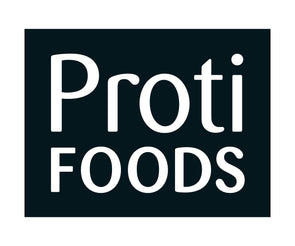
Does Alcohol Affect Protein Absorption?
Understanding the relationship between alcohol consumption and nutrition is essential for anyone who wants to prioritize their health and fitness. Protein plays a crucial role in the body, supporting muscle repair, enzyme function, muscle protein synthesis, and overall cellular health. In this blog, we're exploring the effects of alcohol consumption on protein absorption and utilization, shedding light on how your drinking habits might influence your nutritional intake and overall well-being.

Understanding Protein Absorption
Understanding how your body absorbs protein can clarify the effects of alcohol on muscle growth. The process begins when proteins encounter stomach acid and enzymes, which break them down into simpler structures called amino acids.
Amino acids are the building blocks of your body. They are absorbed in the lining of your small intestine and enter your bloodstream, making them available for use throughout your body. In fitness, they are essential for muscle protein synthesis and repairing muscles after intense workouts.
Stomach acid, enzymes, and the absorption process in the small intestine all play a crucial role in your overall health and fitness progress. Disruptions in this process, such as those caused by high amounts of alcohol, can lead to temporary weight gain and water retention.
Effects of Alcohol on the Body
Alcohol impacts several bodily functions, particularly within the digestive system. When alcohol is consumed, it can alter the functionality of stomach acids and digestive enzymes, leading to impaired nutrient absorption, including proteins.
The liver, a vital organ for metabolic processes, also suffers from alcohol consumption. The liver's primary role is to break down and eliminate toxins, including alcohol. However, heavy drinking can stress the liver, impairing its function and slowing down metabolism. This slowdown affects the body's ability to burn fat and absorb nutrients, leading to potential weight gain and hindered fat loss efforts.
Alcohol and Testosterone
Testosterone is a crucial hormone for muscle growth and repair. It promotes protein synthesis, which is essential for muscle development. Alcohol consumption can lower testosterone levels, both in the short term and long term. Lower testosterone production negatively impacts muscle protein synthesis and muscle health, making it harder to achieve muscle growth and repair after exercise. Studies confirm that even moderate drinking lowers testosterone levels—impairing protein synthesis and hampering muscle health.
Alcohol and Cortisol
Cortisol, known as the stress hormone, also plays a role in muscle health. Elevated cortisol levels can lead to muscle breakdown and hinder protein metabolism. Excessive alcohol consumption can increase cortisol levels in the body, exacerbating stress and its negative effects on muscle and protein metabolism. This increase in cortisol can result in reduced muscle mass and strength over time.
Alcohol and Metabolism
The metabolism of alcohol in the body primarily occurs in the liver. When the liver focuses on breaking down alcohol, it diverts resources away from other metabolic processes, including those involved in protein metabolism. This interference can lead to inefficient nutrient absorption and utilization, impacting overall metabolic health.
Alcohol consumption disrupts normal metabolic functions, including the metabolism of proteins. This disruption can hinder muscle growth and repair, making it difficult to achieve fitness goals. If you’re looking to get a quicker metabolism, reducing alcohol is one way to help.
Is Alcohol Bad for Muscle Growth?
You've learned that alcohol can indeed be a roadblock to your fitness journey, as it's clear that heavy drinking can disrupt protein absorption, hinder muscle growth, and slow down your metabolism by triggering a surge in cortisol levels and suppressing testosterone. It's not just about the calories in your drinks, it's also about how negative effects alcohol has on your body's ability to absorb nutrients, maintain muscle health, and burn fat. This doesn't mean you need to completely ditch your favorite beer or wine, especially when enjoying alcoholic drinks over the holidays; however, moderation is key.
Your fitness goals aren't just about what you do in the gym, but also about what you consume outside of it. So, make smarter choices, limit your alcohol intake during these festive times, and keep striving for those lean body goals. Your body will thank you for it.
